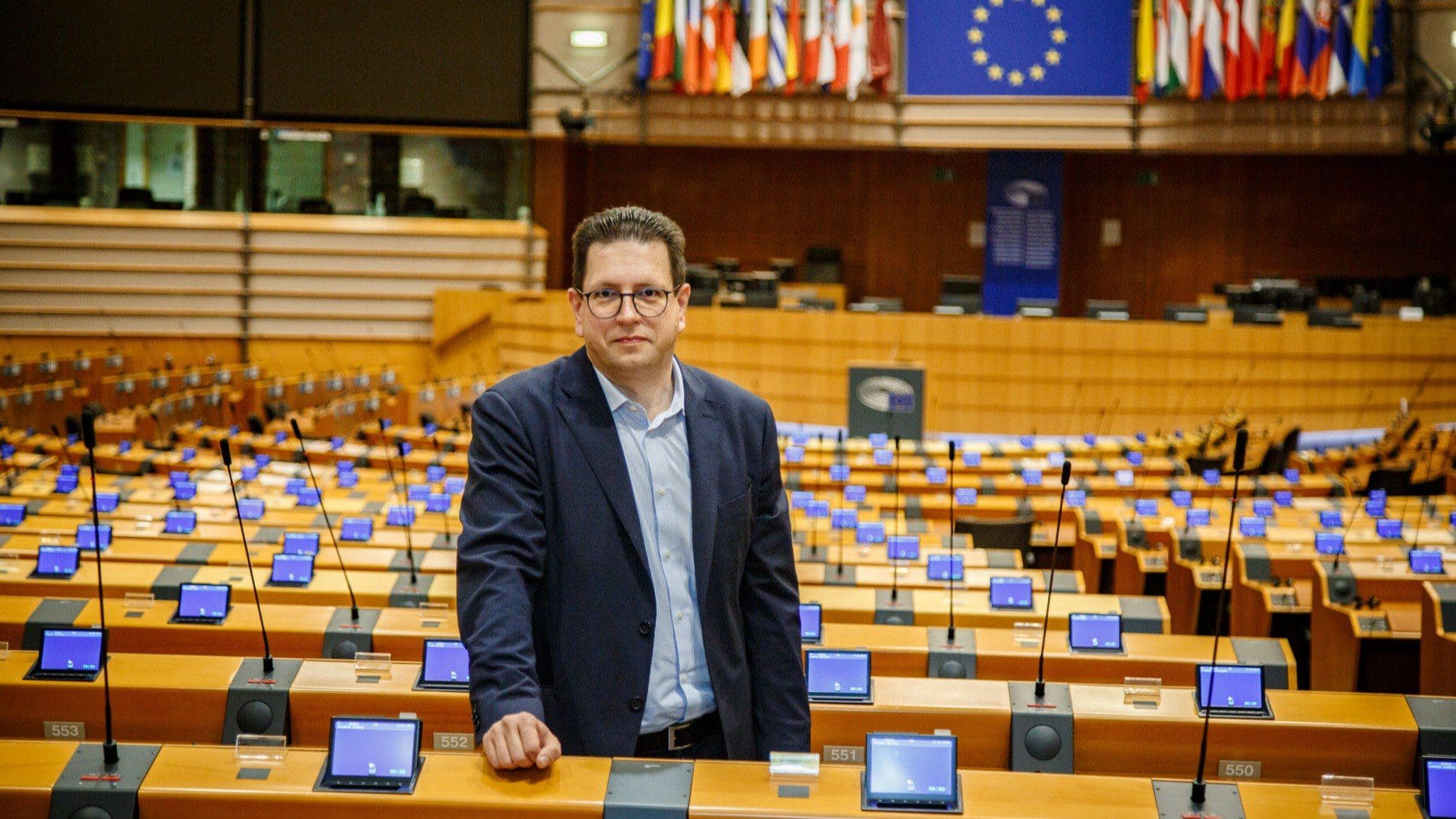Loránt Vincze is a Hungarian Romanian politician currently serving as a Member of the European Parliament for the Democratic Alliance of Hungarians in Romania (RMDSZ), within the EPP Group. He is also the president of the Federal Union of European Nationalities (FUEN). Hungarian Conservative spoke with MEP Vincze in January this year. That interview focussed primarily on the fate of the Minority SafePack initiative, as well as the situation of the ethnic Hungarian communities in Romania and Ukraine. This time the main topic discussed was Ukraine.
The Venice Commission has recently published its reasoned opinion about Ukraine’s new minority law. What are the shortcomings pointed out by the Venice Commission regarding Ukrainian legislation on national minorities and how do these relate to fundamental rights and guarantees for persons belonging to minorities?
I felt a sense of déjà vu when I read the expert opinion of the Venice Commission. In terms of content, this reflected the same considerations that many NGOs and politicians, myself included have been repeating for months. In addition, after studying the document, at the Federal Union of European Nationalities, we were able to conclude that FUEN’s position coincides with everything described by the Venice Commission. That is why I am glad that the Venice Commission had the wisdom and the courage to point out the shortcomings of Ukrainian legislation on national minorities. While I was examining the products of Ukrainian legislation in this area, I concluded that these provisions concern the fundamental rights of persons belonging to national minorities. However, fundamental rights apply to all citizens, no matter their ethnicity. On the other hand, the legislation in question does not contain guarantees concerning the identity protection of persons belonging to minorities, though this should be its main purpose. At this point, it is necessary to intervene, and the proposals of the Venice Commission specifically serve this purpose.
What are the main points of criticism the Venice Commission raised with the Ukrainian government and how did the Ukrainian government respond?
Take, for example, the issue of rights to organise events in the language of the respective minorities. It was quite strange to read the provision that only a few people could request a translation in the state language, Ukrainian of an event that takes place in the minority language at any time, who can know whether the request for translation was actually made in time. Yet, the organiser could have been sued for not providing translation in the state language on this basis at any time. But what is even more important is the education. In this regard, it is important to state that education must be provided not only in the Hungarian language but also in the mother tongue of all minorities: Romanian, Polish, Bulgarian, Greek, German etc. Finally, it can be stated that the Venice Commission sent quite strong signals to the Ukrainian government, and the latter has already decided to postpone the implementation of the provisions affecting the education in the EU’s official languages.
Reading through the news and the official papers of the European Commission as well as the recent outcomes of the judicial proceeding regarding the Minority SafePack, one may get the impression that the Venice Commission is probably a more effective body when it comes to protecting national minorities than the European Commission. What is your opinion?
It certainly seems to be the case. It is hoped that the Venice Commission will look at the regulations concerning national minorities with a special focus on fundamental rights. In the meantime, the European Commission is really failing in this area, in fact, it is literally refusing to act—even though this body has already undertaken the protection of fundamental rights in other areas. They simply shake off the whole thing by saying that the subject area falls within the competence of the member states, even though the ECJ in the case of the Minority SafePack Initiative clearly stated the that EU can take action to support the protest and promote cultural and linguistic diversity. This Commission’s argument is untenable in light of the fact that the European Commission, through Commissioner Olivér Várhelyi, is communicating to Ukraine that it should adapt to the Copenhagen criteria, including in the field of minority protection. And here comes the twist: the European Union does not impose the same obligation on the current member states.
I mean the EU is not consistent; the bloc does not prepare legislation that would adequately protect national minorities.
This is saddening considering that the European Commission and the European Parliament regularly formulate positions that call for the legal protection of minorities living in different parts of the world. I simply don’t see any diligence in the European Union to do the same within its own circuits.
What is the official position of FUEN regarding how Ukraine handles the issue of protecting national minorities?
FUEN, as the largest umbrella organisation in the field of minority protection, has raised its voice for the protection of linguistic and traditional minorities whenever it was needed. But we always point out very specific topics as well. That is why we offered help to the victims of the Russia’s war against Ukraine. We were following very closely the legislative changes in Ukraine even before the war and we are doing the same now. At our congress last year we decided that as soon as there is peace in Ukraine again, a completely new minority policy should be created, reflecting the requirements of the relevant European conventions. Of course, I am referring here to the language charter and the framework convention of the Council of Europe in particular. FUEN’s position is therefore clear: it is necessary to support Ukraine and to ask Kyiv to respect minority rights at the same time. From the point of view of minority protection, certain legislative developments from an EU aspirant country, such as laws on the use of language, the division of regions, the media, or education, cannot be accepted.

And what are the most crucial issues for the Hungarian minorities in Ukraine right now?
Well, I think the most pressing issue is education. The administration has postponed the effective date of this measure so the imminent danger has passed in this regard. But it is not the solution, just a postponement. So, we will see in the next year if Ukraine is ready to propose a solution. And the solution can only be the granting of minority language education at all levels—from kindergarten to university. Obviously, nobody has ever denied that pupils in minority language education should also learn the state language, in this case, Ukrainian. This is how it works in the majority of the EU states, including Romania or Hungary for that matter. The second most pressing issue is the use of the minority language. This depends on two factors. In addition to effective legal provisions guaranteeing that minority languages can be used in a reassuring manner in the public sphere, the attitude of the majority society towards minorities is also extremely important. Here, I am talking about the level of acceptance of language diversity in society.
It is always the majority that has to make a step towards the minorities,
making sure that it is open to accommodate the requests of the minorities for a multilingual society. If everything depended on the sole decision of the majority, then the minority would always lose. That is why besides the national legislation we need international guarantees of minority rights. For this purpose, we work to promote the cause of the Minority SafePack Initiative. This package is the only one that currently represents the rights of minorities according to European standards, not only on the continent, but also on the global stage.
Going back to the latest developments of the judicial proceedings regarding the Minority SafePack, let me ask you one last question. How do you see the current state of the minority protection framework within the European Union?
It was especially bad to watch the General Court of the EU changing its position on the issue, practically identifying with the position of the European Commission. Moreover, the ECJ came to this conclusion based on unsustainable reasoning that ignores the logic of the law and the purposes of the Initiative. Of course, we appealed, and the procedure is currently in the opinion phase, during which the intervenant can formulate their opinion. It gives me pleasure to see next to Hungary, regions such as South Tyrol or the German-speaking Community in Belgium stand up for the Minority SafePack cause as interveners. And although the fate of Minority SafePack will soon be decided in court, over the past years the package has become a unique brand of minority protection. This means that I expect the Minority SafePack story will not end when the European Commission or the European Court of Justice closes the case. We witnessed the solidarity and support of certain member states and regions. The fact that the German governmental programme includes support for the Minority SafePack is a clear sign, but fortunately, we can find more examples. I think it is important that we have this solidarity movement for European minorities that is regardless of the language, or the status of the different minorities. And I hope that in time it will be possible to break down the walls of indifference that the European Commission has built around itself with its reluctance.
What do you think is the reason behind that?
In good faith, I assume that this reluctance is just due to the fact that some member states are simply afraid to deal with the topic meaningfully. They might believe that significant changes would lead to conflicts based on historical sensitivities. Yet the European Commission and the member states should have the courage to take action in this regard as they do this in several other matters that initially were not European competencies, namely the protection of other minority groups. The EU has a coherent framework for LGBTI communities and has developed its Roma strategy which is a very positive development. So in light of this,
I wonder why autochthonous minorities are the only ones discriminated against and overlooked in the European process.
We are working on changing this, and I was pleased to note that the vast majority of the European Parliament supports minority rights and that the EU should finally have an independent framework in this regard. The latest case was the report that I authored on the cooperation between the EU and the Council of Europe which was supported by an overwhelming majority. I think this is a good ground to build on, but we need to see a change in the attitude of the European Commission.








